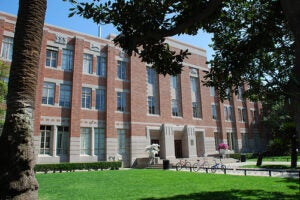The Capone Lab: Background and research overview
The primary research theme of the Capone Lab is the cycling of Nitrogen in the marine environment. We have a particular interest in the biogeochemical and physiological factors controlling the marine nitrogen cycle. We have had a major focus on biological fixation, the enzymatic conversion of dinitrogen gas (N2) by certain marine microbes which results in the production of forms of nitrogen (e.g. ammonia) more useful to the ocean biota at large.
In recent years, the study of marine N2 fixation has been a highly active area of oceanographic research, with Dr. Capone and his lab key contributors to the literature in this field. Much of our work has involved the study of the Trichodesmium – an important nitrogen fixing (diazotroph) cyanobacteria. N2 fixation may be particularly important in nutrient poor areas of the ocean where the availability of nitrogen useful to the biota may limit rates of primary production, the formation of new organic matter, by marine phytoplankton.
Our research therefore has direct and important implications on the wider study of global climate systems, as the uptake of CO2 by marine organisms and its subsequent removal into the deep ocean, commonly referred to as the ‘biological pump’, represents a highly significant mechanism of CO2 sequestration. A better understanding of the biological and chemical controls on such processes is therefore a key component in uncovering the role of the Oceans in global climate interactions.
We are currently active in multiple research projects, with our most recent areas of study the tropical South Pacific, and the Amazon river plume in the Atlantic. We are also working in terrestrial lake environments, and have had recent research efforts in dry valley stream environments in Antarctica.
Please read more about our projects and graduate student research, and feel free to contact us with any questions.

3616 Trousdale Pkwy., AHF 108
Los Angeles
CA 90089-0371
Find us:
Contact Us: Doug Capone
